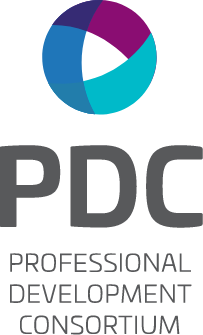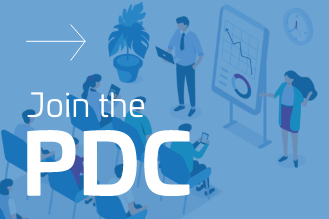You are here
The PD Professional is Needed Now More Than Ever
August 11, 2020

By: Marian Lee
In the past five months, the world has changed in ways we never imagined. In addition to the fear, stress, and other personal impacts of the pandemic, our working world has been rocked. We’ve seen a rapid transition to remote work, increased volatility and uncertainty of the business environment, and dramatic economic impacts. For many law firms, these impacts have resulted in layoffs, furloughs and pay cuts for staff members and attorneys, in addition to reduced draws for partners.
In this environment, a number of firms are reducing the resources devoted to professional development programs. A June 2020 survey reported that 65% of responding firms had suspended all or some of their training and coaching programs during the pandemic crisis, and 33% had laid off professional development staff.[1]
At first glance, PD functions may seem a logical target for reductions. But there is more to the picture. Because of PD professionals’ unique and broad-reaching role, as well as their expertise in helping attorneys to connect, learn, and adapt, they are well-positioned to help attorneys to thrive in the new normal. Accordingly, firms should carefully consider whether the relatively small amount saved by cutting PD personnel is worth losing a professional with a greater potential to engage attorneys and elevate their performance than ever before.
The Obvious and Not-so-Obvious Benefits of PD
Firms have long recognized the value of internal training, mentoring, and evaluation programs to enhance their attorneys’ professional development. Initially, as is still the case in smaller firms, practicing lawyers were assigned to organize these efforts, often with the support of a committee. As firms grew larger and billable hour pressures increased on the partners in charge of these efforts, firms began to create full-time PD positions. These positions did not supplant the critical role that experienced lawyers and practice leaders play in providing training, serving as mentors, and giving feedback, but it freed them from administrative tasks associated with such programs.
Hiring full-time PD professionals not only relieved administrative burden, it brought new expertise and focus to all aspects of legal talent management. At the highest levels, the PD professional’s role is to support the strategic vision of the firm and its leaders and to serve as a catalyst for continuous learning and improvement. In contrast to siloed PD activities scattered among a variety of partners, PD professionals began to create cohesive talent management systems that aligned all of the talent functions - recruiting, onboarding, training, mentoring, diversity and inclusiveness, evaluations, promotions, and performance management – with firms’ core values and competencies.
PD professionals provide this alignment through both the creation of their own programs and by coordinating with a wide variety of stakeholders. For example, they attend meetings and provide input on professional development, diversity, pro bono, and hiring committees. They create coaching and training groups for attorneys at particular levels. They assign and monitor mentoring relationships. They work with supervising partners and department chairs on performance evaluations. They typically oversee recruiting and summer programs. They may work on strategic initiatives with the firm’s leadership, and often collaborate with other functional leaders in departments such as marketing, HR, and IT.
When functions are aligned, each one reinforces and supports the other, leading to increased efficiency and clearer communication about what a firm values and expects from its lawyers. Although the beneficial effects of their efforts are not immediately visible, over time, the firm’s investment in developing its talent instills loyalty, increases retention and engagement, and maximizes performance of a firm’s attorneys.
PD professionals add value not only through their official role in aligning talent functions, but also through their de facto role as connectors. When I began my job as a PD director, I expected to design and implement programs, coach associates, and help partners and associates to communicate with each other. Three years later, as I was putting together cohort groups, matching associates with mentors, finding partners to teach courses, and bringing attorneys from throughout the firm together for training programs, I realized that some of the most valuable work we do in PD is to bring people together. Very few positions provide the wealth of opportunities to connect people and facilitate the sharing of information across departments, disciplines, and experience levels – as well as the building of relationships - that a PD position does.
Robust PD programs not only benefit the attorneys in the firm, they also make the firm more attractive to recruits. It is widely recognized that today’s law students and young lawyers place a high value on professional development. Firms that cut corners in this area may lose talented recruits to firms that show an unwavering commitment to their attorneys’ ongoing growth and development.
The Power of PD to Transform the Post-COVID Workplace
In this new era, attorneys are experiencing high levels of stress and anxiety. Many feel isolated and find it difficult to stay motivated. They are adjusting to remote work, not being able to see their colleagues in the hall or the lunch room every day, and not having the same amount of human interaction overall. Some associates report that they are receiving less feedback in recent months, in part because supervisors forget to get back to associates they no longer see in person. It is precisely this environment that makes the PD professional more important now than ever before.
Firms have readily recognized the need to move summer programs to a virtual format, planning training sessions, virtual “coffee meetings,” and other events to facilitate their integration into the firm. This same intentionality must be brought to maintaining PD programs and connections for attorneys at all levels.
In addition to increased interactions and connections, attorneys will need education in new competencies such as stress management, resilience, remote work, and remote supervision. PD professionals are in an optimal position to identify resources and bring them to the firm to provide this education. Indeed, learning to adapt will be an ongoing challenge for all workers in the post-COVID era.
As the workplace is transformed to a remote environment and systems are modified and reinvented, PD professionals also have a unique opportunity to improve the inclusiveness of our work environment. For example, the transition to videoconference interviewing can provide the opportunity for a more diverse group of partners and associates to interview each candidate. Work assignment processes can be re-designed so they are based less on which associate is nearby or top of mind, and more on objectively allocating work to those who have the capacity and need the experience it provides. Similarly, networking opportunities can be allocated in a more structured and intentional way, rather than through the casual approach partners have historically taken to extending lunch and event invitations.
Firms can capitalize on these opportunities by doubling down and re-committing to their PD professionals and associated budgets. Given the PD professional’s natural role as “glue” within the firm, their dedication to ensuring that connections, conversations, and gatherings actually occur, and their ability to facilitate learning in a time of constant change and adaptation, the PD professional is needed now more than ever.
[1] “Learning and Development Practices in Professional Service Firms During the Covid-19 Crisis” by Leadership for Lawyers LLC and Cote Consultants (June 2020).

Marian Lee, JD
Lawyer Development Coach and Consultant
Career Reinvention, LLC
600 17th Street, Suite 2800 South
Denver, CO 80202
720-773-2559
marian@careerreinvention.net
www.careerreinvention.net
Connect with Marian Lee on LinkedIn!


